- Home
- Alice Hoffman
Practical Magic Page 2
Practical Magic Read online
Page 2
One beautiful April day, when Sally was in sixth grade, all of the aunts’ cats followed her to school. After that, even the teachers would not pass her in an empty hallway and would find an excuse to head in the other direction. As they scurried away, the teachers smiled at her oddly, and perhaps they were afraid not to. Black cats can do that to some people; they make them go all shivery and scared and remind them of dark, wicked nights. The aunts’ cats, however, were not particularly frightening. They were spoiled and liked to sleep on the couches and they were all named for birds: There was Cardinal and Crow and Raven and Goose. There was a gawky kitten named Dove, and an ill-tempered tom called Magpie, who hissed at the others and kept them at bay. It would be difficult to believe that such a mangy bunch of creatures had come up with a plan to shame Sally, but that is what seemed to have happened, although they may have followed her on that day simply because she’d fixed a tunafish sandwich for lunch, just for herself, as Gillian was pretending to have strep throat and was home in bed, where she was sure to stay for the best part of a week, reading magazines and eating candy bars with no cares when it came to getting chocolate on the sheets, since Sally was the one who took responsibility for the laundry.
On this morning, Sally didn’t even know the cats were behind her, until she sat down at her desk. Some of her classmates were laughing, but three girls had jumped up onto the radiator and were shrieking. Anyone would have thought a gang of demons had entered the room, but it was only those flea-bitten creatures that had followed Sally to school. They paraded past chairs and desks, black as night and howling like banshees. Sally shooed them away, but the cats just came closer. They paced back and forth in front of her, their tails in the air, meowing with voices so horrible the sound could have curdled milk in the cup.
“Scat,” Sally whispered when Magpie jumped into her lap and began kneading his claws into her nicest blue dress. “Go away,” she begged him.
But even when Miss Mullins came in and smacked her desk with a ruler and used her sternest voice to suggest that Sally had better rid the room of the cats—tout de suite—or risk detention, the revolting beasts refused to go. A panic had spread and the more high-strung of Sally’s classmates were already whispering witchery. A witch, after all, was often accompanied by a familiar, an animal to do her most evil bidding. The more familiars there were, the nastier the bidding, and here was an entire troop of disgusting creatures. Several children had fainted; some would be phobic about cats for the rest of their lives. The gym teacher was sent for, and he waved a broom around, but still the cats would not leave.
A boy in the rear of the room, who had stolen a pack of matches from his father just that morning, now made use of the chaos in the classroom and took the opportunity to set Magpie’s tail on fire. The scent of burning fur quickly filled the room, even before Magpie began to scream. Sally ran to the cat; without stopping to think, she knelt and smothered the flames with her favorite blue dress.
“I hope something awful happens to you,” she called to the boy who’d set Magpie afire. Sally stood up, the cat cradled in her arms like a baby, her face and dress dirty with soot. “You’ll see what it’s like then,” she said to the boy. “You’ll know how it feels.”
Just then the children in the classroom directly overhead began to stomp their feet—out of joy, since it had been revealed their spelling tests had been eaten by their teacher’s English bulldog—and an acoustic tile fell onto the horrid boy’s head. He collapsed to the floor in a heap, his face ashen in spite of his freckled complexion.
“She did it!” some of the children cried, and the ones who did not speak aloud had their mouths wide open and their eyes even wider.
Sally ran from the room with Magpie in her arms and the other cats following. The cats zigzagged under and around her feet all the way home, down Endicott and Peabody streets, through the front door and up the stairs, and all afternoon they clawed at Sally’s bedroom door, even after she’d locked herself inside.
Sally cried for two hours straight. She loved the cats, that was the thing. She sneaked them saucers of milk and carried them to the vet on Endicott Street in a knitting bag when they fought and tore at each other and their scars became infected. She adored those horrible cats, especially Magpie, and yet sitting in her classroom, embarrassed beyond belief, she would have gladly watched each one be drowned in a bucket of icy water or shot with a BB gun. Even though she went out to care for Magpie as soon as she’d collected herself, cleaning his tail and wrapping it in cotton gauze, she knew she’d betrayed him in her heart. From that day on, Sally thought less of herself. She did not ask the aunts for special favors, or even request those small rewards she deserved. Sally could not have had a more intractable and uncompromising judge; she had found herself lacking, in compassion and fortitude, and the punishment was self-denial, from that moment on.
After the cat incident, Sally and Gillian became more feared than ignored. The other girls in school no longer teased; instead, they quickly walked away when the Owens sisters passed by, and they all kept their eyes cast down. Rumors of witchcraft spread in notes passed from desk to desk; accusations were whispered in hallways and bathrooms. Those children who had black cats of their own begged their parents for a different pet, a collie or a guinea pig or even a goldfish. When the football team lost, when a kiln in the art room exploded, everyone looked toward the Owens girls. Even the rowdiest boys did not dare to hit them with dodge balls at recess, or aim spitballs in their direction; not a single one threw apples or stones. At slumber parties and Girl Scout meetings there were those who swore that Sally and Gillian could induce a hypnotic trance that would make you bark like a dog or jump right off a cliff, if they so desired. They could put a spell on you with a single word or a nod of their heads. And if either of the sisters was truly angry, all she needed to do was recite the nine times table backward, and that would be the end of you. The eyes in your head would melt. Flesh and bones would turn into pudding. They’d serve you in the school cafeteria the very next day, and no one would be the wiser.
The children in town could whisper whatever rumors they wished, but the truth was that most of their mothers had gone to see the aunts at least once in their lives. Occasionally, someone might appear who wanted red pepper tea for a persnickety stomach, or butterfly weed for nerves, but every woman in town knew what the aunts’ real business was: their specialty was love. The aunts were not invited to potluck suppers or library fund-raisers, but when a woman in town quarreled with her lover, when she found herself pregnant by someone who wasn’t her husband, or discovered that the man she’d married was unfaithful as a hound, then there she’d be, at the Owens back door, just after twilight, the hour when the shadows could hide your features so that no one would recognize you as you stood beneath the wisteria, a tangled vine that had grown above the door for longer than anyone in town had been alive.
It didn’t matter if a woman was the fifth-grade teacher at the elementary school, or if she was the pastor’s wife, or perhaps the longtime girlfriend of the orthodontist on Peabody Street. It didn’t matter that people swore black birds dropped from the sky, ready to peck out your eyes when you approached the Owens house from the east. Desire had a way of making a person oddly courageous. In the aunts’ opinion, it could sneak up on a grown woman and turn her from a sensible creature into something as foolish as a flea that keeps chasing after the same old dog. Once someone had made the decision to come to the back door, she was more than ready to drink pennyroyal tea, prepared with ingredients that couldn’t even be spoken aloud, which would surely bring on bleeding that night. She’d already decided to let one of the aunts prick the third finger of her left hand with a silver needle if that’s what it took to get her darling back once more.
The aunts clucked like chickens whenever a woman walked up the bluestone path. They could read desperation from half a mile away. A woman who was head over heels and wanted to make certain her love was returned would be happy to hand ove
r a cameo that had been in her family for generations. One who had been betrayed would pay even more. But those women who wanted someone else’s husband, they were the worst. They would do absolutely anything for love. They got all twisted up, like rubber bands, just from the heat of their desire, and they didn’t give a damn for convention and good manners. As soon as the aunts saw one of those women walking up the path, they sent the girls straight to the attic, even on December nights, when twilight came well before four-thirty.
On those murky evenings, the sisters never protested that it was too early, or that they weren’t yet tired. They tiptoed up the stairs, holding hands. From the landing, beneath the dusty old portrait of Maria Owens, the girls called out their good nights; they went to their rooms, slipped their nightgowns over their heads, then went directly to the back staircase, so they could creep down again, press their ears against the door, and listen in to every word. Sometimes, when it was an extremely dark evening and Gillian was feeling especially brave, she would push the door ajar with her foot, and Sally wouldn’t dare to close it again, for fear it might creak and give them away.
“This is so silly,” Sally would whisper. “It’s utter nonsense,” she’d decree.
“Then go to bed,” Gillian would whisper right back. “Go on,” she’d suggest, knowing that Sally wouldn’t dare to miss any of what happened next.
From the angle of the back stairs, the girls could see the old black stove and the table and the hooked rug, where the aunts’ customers often paced back and forth. They could see how love might control you, from your head to your toes, not to mention every single part of you in between.
Because of this, Sally and Gillian had learned things most children their age had not: that it was always wise to collect fingernail clippings that had once been the living tissue of your beloved, just in case he should take it into his head to stray; that a woman could want a man so much she might vomit in the kitchen sink or cry so fiercely blood would form in the corners of her eyes.
On evenings when the orange moon was rising in the sky, and some woman was crying in their kitchen, Sally and Gillian would lock pinkies and vow never to be ruled by their passions.
“Yuck,” the girls would whisper to each other when a client of their aunts would weep or lift her blouse to show the raw marks where she’d cut the name of her beloved into her skin with a razor.
“Not us,” the sisters would swear, locking their fingers even more tightly.
During the winter when Sally was twelve and Gillian almost eleven, they learned that sometimes the most dangerous thing of all in matters of love was to be granted your heart’s desire. That was the winter when a young woman who worked in the drugstore came to see the aunts. For days the temperature had been dropping. The engine of the aunts’ Ford station wagon sputtered and refused to turn over and the tires were frozen to the concrete floor of the garage. Mice would not venture out from the warmth of the bedroom walls; swans in the park picked at icy weeds and still they went hungry. The season was so cold and the sky so heartless and purple it made young girls shiver just to look upward.
The customer who arrived one dark evening wasn’t pretty, but she was known for her kindness and sweet disposition. She delivered holiday meals to the elderly and sang in a choir with a voice like an angel’s and always put an extra squirt of syrup in the glass when children ordered vanilla Cokes at the soda fountain. But when she arrived at twilight, this plain, mild girl was in such agony that she curled up on the hand-hooked rug; her fists were so tightly clenched they were like the claws of a cat. She threw her head back and her glossy hair fell over her face like a curtain; she chewed on her lip until her flesh bled. She was being eaten alive by love and had already lost thirty pounds. Because of this the aunts seemed to take pity on her, something they rarely did. Though the girl hadn’t much money, they gave her the strongest potion they could, with exact instructions on how to make another woman’s husband fall in love with her. Then they warned her that what was done could never be undone, and so she must be sure.
“I’m sure,” the girl said, in her calm beautiful voice, and the aunts must have been satisfied, because they gave her the heart of a dove, set on one of their best saucers, the kind with the blue willows and the river of tears.
Sally and Gillian sat on the back stairs in the dark, their knees touching, their feet dirty and bare. They were shivering, but still they grinned at each other and whispered right along with the aunts a charm they knew well enough to recite in their sleep: “My lover’s heart will feel this pin, and his devotion I will win. There’ll be no way for him to rest nor sleep, until he comes to me to speak. Only when he loves me best will he find peace, and with peace, rest.” Gillian made little stabbing motions, which is what the girl was to do to the dove’s heart when she repeated these words for seven nights in a row before she went to bed.
“It will never work,” Sally whispered afterward, as they felt their way along in the dark, up the stairs and along the hall to their rooms.
“It might work,” Gillian whispered back. “Even though she’s not pretty, it’s still within the realm of possibility.”
Sally drew herself up; she was older and taller and always knew best. “We’ll just see about that.”
For nearly two weeks, Sally and Gillian watched the lovesick girl. Like hired detectives, they sat for hours at the counter in the drugstore and spent all their pocket money on Cokes and french fries so they could keep an eye on her. They trailed after when she went home to the apartment she shared with another girl, who worked at the dry cleaner’s. The more they followed her schedule, the more Sally began to feel they were invading the girl’s privacy, but the sisters continued to believe they were doing important research, although now and then Gillian was confused as to what their goal really was.
“It’s simple,” Sally told her. “We need to prove that the aunts have no powers whatsoever.”
“If the aunts are full of baloney”—Gillian grinned—“then we’ll be just like everyone else.”
Sally nodded. She could not begin to express how deeply she felt about this matter, since being like everyone else was her personal heart’s desire. At night Sally dreamed of ranch houses and white picket fences, and when she woke in the morning and looked out to see the black metal spikes that surrounded them, tears formed in her eyes. Other girls, she knew, washed with bars of Ivory and sweet-scented Camay, while she and Gillian were forced to use the black soap the aunts made twice a year, on the back burner of their stove. Other girls had mothers and fathers who didn’t give a hoot about desire and fate. In no other house on their street or in their town was there a drawer crammed with cameos, given in payment for desires fulfilled.
All Sally could hope for was that perhaps her life was not quite as abnormal as it appeared. If the love charm didn’t work for the girl from the drugstore, then perhaps the aunts were only pretending their powers. So the sisters waited and prayed that nothing would happen. And when it seemed certain that nothing would, the principal of their school, Mr. Halliwell, parked his station wagon outside the drugstore girl’s apartment, just as the light was fading. He casually walked inside, but Sally noticed that he made sure to look over his shoulder; his eyes were bleary, as though he hadn’t slept for seven nights.
That evening the girls did not go home for supper, despite Sally’s promise to the aunts that she would fix lamb chops and baked beans. The wind picked up and a freezing rain had begun to fall; still the girls stood across the street from the drugstore girl’s apartment. Mr. Halliwell didn’t come out until after nine, and he had a strange expression on his face, as if he didn’t quite know where he was. He walked right past his own car, not recognizing it, and not until he was halfway home did he remember he’d parked somewhere, and then it took him nearly an hour to locate the forgotten spot. After that, he appeared every evening at the exact same time. Once he had the nerve to come to the drugstore at lunch and order a cheeseburger and a Coke, although he didn�
�t eat a bite and instead stared longingly at the girl who’d put a spell on him. He sat there on the very first stool, so hot and amorous that the linoleum countertop on which he rested his elbows began to bubble. When he finally noticed Sally and Gillian watching him, he demanded that the sisters head back to school, and he reached for his burger, but he still couldn’t keep his eyes off the girl. He’d been hit by something, all right; the aunts had gotten to him just as sure as if they’d picked him off with a bow and arrow.
“Coincidence,” Sally insisted.
“I don’t know about that.” Gillian shrugged. Anyone could see that the girl from the drugstore looked all lit up inside as she fixed hot fudge sundaes and rang up prescriptions for antibiotics and cough syrup. “She got what she wanted. However it happened.”
But as it turned out, the girl didn’t have exactly what she’d wanted. She came back to the aunts, more distraught than ever. Love was one thing, marriage quite another. Mr. Halliwell, it seemed, was not certain he could leave his wife.
“I don’t think you want to watch this,” Gillian whispered to Sally.
“How do you know?”
The girls were whispering right in each other’s ears; they had a scared feeling they didn’t usually have when they spied from the safety of the stairs.
“I saw it once.” Gillian looked particularly pale; her fair hair stuck out from her head in a cloud.
Sally drew away from her sister. She understood why people said blood could turn to ice. “Without me?”
Gillian often came to the back stairs without her sister to test herself, to see how fearless she could be. “I didn’t think you’d want to. Some of the things they do are pretty gross. You won’t be able to take it.”
After that, Sally had to remain beside her younger sister on the stairs, if only to prove that she could. “We’ll just see who can take it and who can’t,” she whispered.

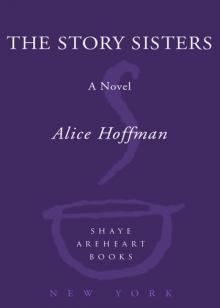 The Story Sisters
The Story Sisters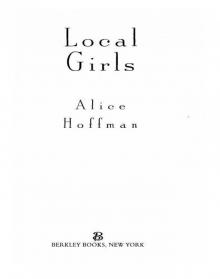 Local Girls
Local Girls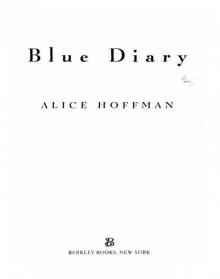 Blue Diary
Blue Diary The River King
The River King Here on Earth
Here on Earth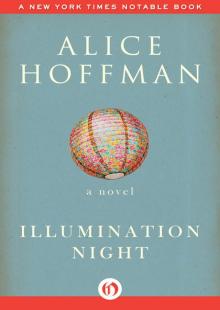 Illumination Night: A Novel
Illumination Night: A Novel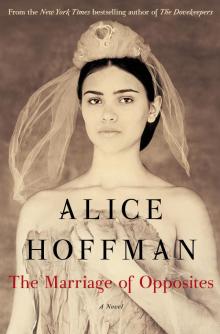 The Marriage of Opposites
The Marriage of Opposites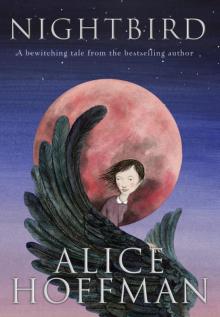 Nightbird
Nightbird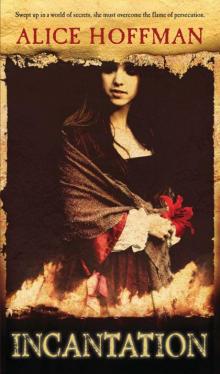 Incantation
Incantation Skylight Confessions
Skylight Confessions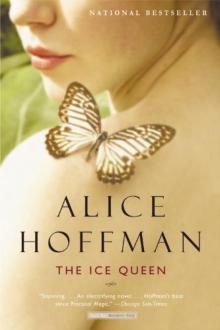 The Ice Queen
The Ice Queen Second Nature
Second Nature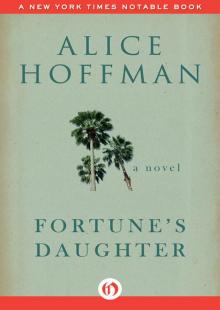 Fortune's Daughter: A Novel
Fortune's Daughter: A Novel Seventh Heaven
Seventh Heaven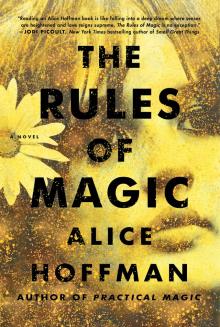 The Rules of Magic
The Rules of Magic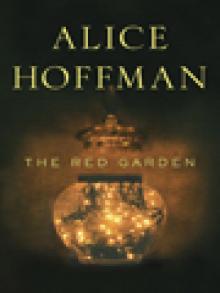 The Red Garden
The Red Garden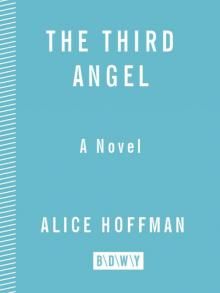 The Third Angel
The Third Angel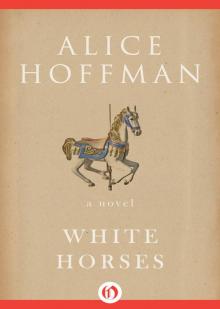 White Horses
White Horses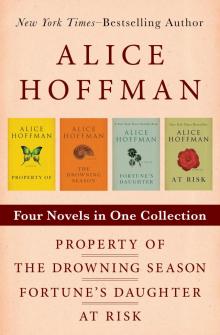 Property of / the Drowning Season / Fortune's Daughter / at Risk
Property of / the Drowning Season / Fortune's Daughter / at Risk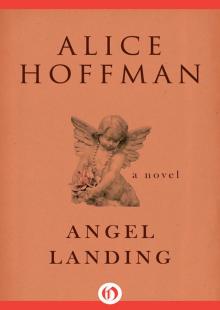 Angel Landing
Angel Landing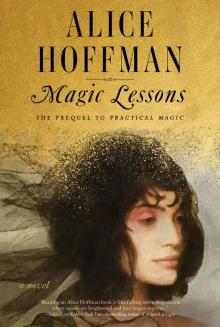 Magic Lessons
Magic Lessons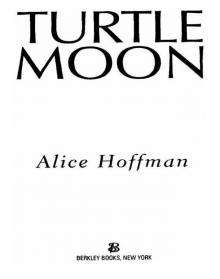 Turtle Moon
Turtle Moon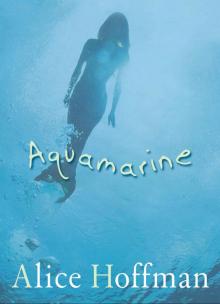 Aquamarine
Aquamarine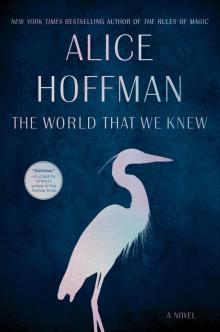 The World That We Knew
The World That We Knew Faithful
Faithful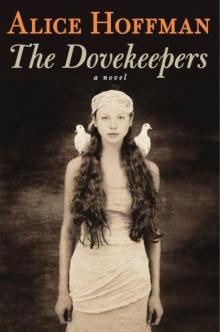 The Dovekeepers
The Dovekeepers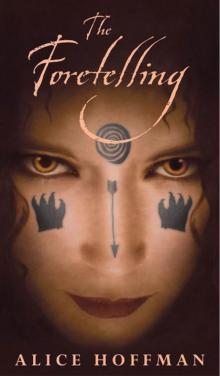 The Foretelling
The Foretelling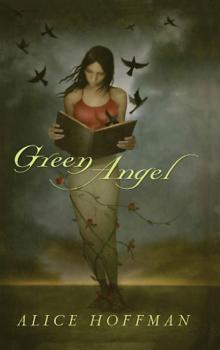 Green Angel
Green Angel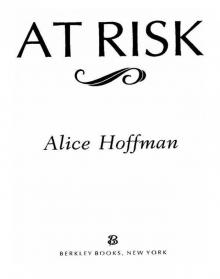 At Risk
At Risk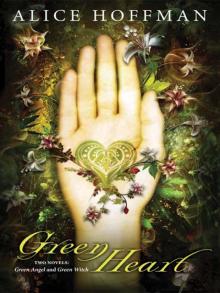 Green Heart
Green Heart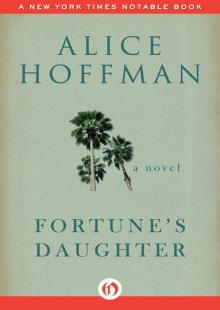 Fortune's Daughter
Fortune's Daughter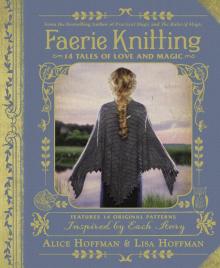 Faerie Knitting
Faerie Knitting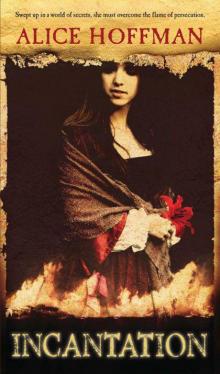 Incantation (v5)
Incantation (v5)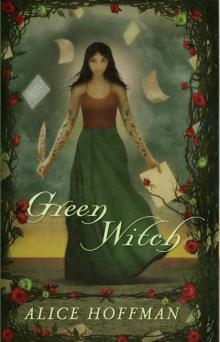 Green Witch
Green Witch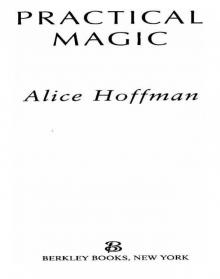 Practical Magic
Practical Magic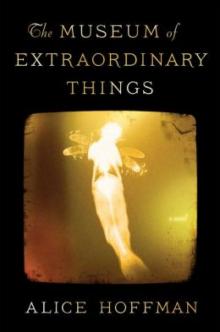 The Museum of Extraordinary Things
The Museum of Extraordinary Things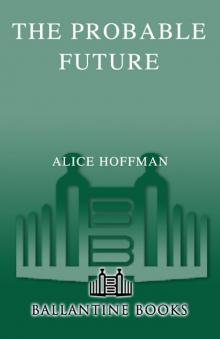 The Probable Future
The Probable Future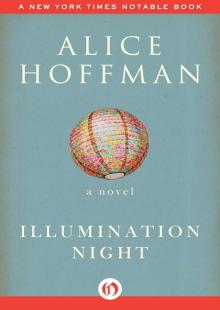 Illumination Night
Illumination Night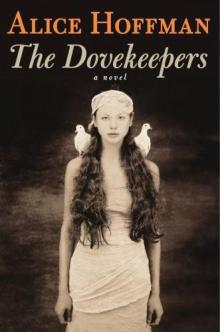 The Dovekeepers: A Novel
The Dovekeepers: A Novel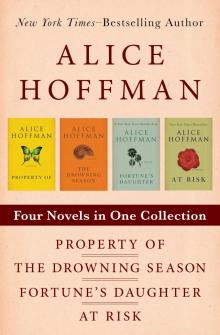 Property Of, the Drowning Season, Fortune's Daughter, and At Risk
Property Of, the Drowning Season, Fortune's Daughter, and At Risk